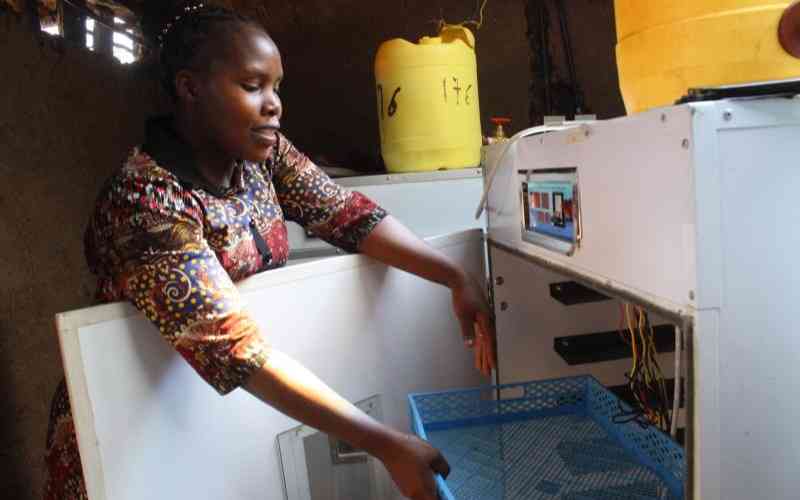×
The Standard e-Paper
Smart Minds Choose Us

They say experience is the best teacher and Faith Jeptoo, a poultry farmer in Mosoriot, Nandi County can attest to this fact. She faced several challenges when starting her hatching business in January, but she is now a master of sorts.
"In the beginning, I suffered many losses because I was not keen on small details that affect the hatching rate. But now I have learned from my mistakes and business has picked up well," says Jeptoo a Bachelor of Arts Degree graduate.